Youaurendenial - Are You Supposed To Be Here?

More Posts from Youaurendenial and Others
the bear minimum (one bear, very small)


“A house I pass on the way to work has this sculpture in its yard. Its about 8 feet tall.”
(Source)
The James Webb Space Telescope: A Story of Art & Science

Artists of all kinds were invited to apply for the chance to visit our Goddard Space Flight Center to be inspired by the giant, golden, fully-assembled James Webb Space Telescope mirror.

Art/Photo Credit: Jedidiah Dore
Webb has a mirror that is nearly 22 feet high and (to optimize it for infrared observations) is covered in a microscopic layer of actual gold.

Art/Photo Credit: Susan Lin
Because of Webb’s visually striking appearance, the project hosted a special viewing event on Wednesday, Nov. 2, 2016.

Photo Credit: Maggie Masetti
There was an overwhelming response to the event invitation and ultimately twenty-four people were selected to attend. They represented a broad range of artistic media and styles, including: watercolor, 3D printed sculpture, silk screening, acrylics, sumi-e (East Asian brush technique), comics, letterpress, woodwork, metalwork, jewelry making, fiber art, ink, mural painting, kite-making, tattooing, scientific illustration, poetry, songwriting, and video making.

Art/Photo Credit: Sue Reno
Project scientists and engineers spoke with visitors to give context to what they were seeing and explain why Webb is an engineering marvel, and how it will change our view of the universe.

Among other things, Webb will see the first stars and galaxies that formed in the early universe and help us to better understand how planetary systems form and evolve. It will help us answer questions about who we, as humans, are and where we came from.

Art Credit: Jessica Lee Photo Credit: Maggie Masetti
The artists spent several hours sitting right in front of the telescope, where they sketched, painted, took photos and even filmed a music video.

Art Credit: Joanna Barnum Photo Credit: Maggie Masetti
While some of the pieces of art are finished, most of the artists went home with their heads full of ideas and sketchbooks full of notes. Stay tuned for more info on where you can see their final works displayed!

Art/Photo Credit: Susan Lin
Finished art from the event continues to be added HERE.
The James Webb Space Telescope is finishing environmental testing at our Goddard Space Flight Center in Greenbelt, Maryland. Next it will head to our Johnson Space Center in Houston for an end-to-end test at cryogenic temperatures. After that, it goes to Northrop Grumman to be mated with the giant tennis court-sized sunshield and the spacecraft bus. The observatory will launch in October of 2018 from a European Space Agency (ESA) launch site in French Guiana, aboard an Ariane 5 rocket. Webb is a collaboration of NASA, ESA, and the Canadian Space Agency (CSA).
Follow Webb on Facebook, Twitter and Instagram.
Make sure to follow us on Tumblr for your regular dose of space: http://nasa.tumblr.com
reblog if you are ASEXUAL, support ASEXUAL PEOPLE, or SECRETLY A DRAGON IN HUMAN FORM
New paint colors invented by neural network
So if you’ve ever picked out paint, you know that every infinitesimally different shade of blue, beige, and gray has its own descriptive, attractive name. Tuscan sunrise, blushing pear, Tradewind, etc… There are in fact people who invent these names for a living. But given that the human eye can see millions of distinct colors, sooner or later we’re going to run out of good names. Can AI help?
For this experiment, I gave the neural network a list of about 7,700 Sherwin-Williams paint colors along with their RGB values. (RGB = red, green, and blue color values) Could the neural network learn to invent new paint colors and give them attractive names?
One way I have of checking on the neural network’s progress during training is to ask it to produce some output using the lowest-creativity setting. Then the neural network plays it safe, and we can get an idea of what it has learned for sure.
By the first checkpoint, the neural network has learned to produce valid RGB values - these are colors, all right, and you could technically paint your walls with them. It’s a little farther behind the curve on the names, although it does seem to be attempting a combination of the colors brown, blue, and gray.

By the second checkpoint, the neural network can properly spell green and gray. It doesn’t seem to actually know what color they are, however.

Let’s check in with what the more-creative setting is producing.

…oh, okay.
Later in the training process, the neural network is about as well-trained as it’s going to be (perhaps with different parameters, it could have done a bit better - a lot of neural network training involves choosing the right training parameters). By this point, it’s able to figure out some of the basic colors, like white, red, and grey:

Although not reliably.

In fact, looking at the neural network’s output as a whole, it is evident that:
The neural network really likes brown, beige, and grey.
The neural network has really really bad ideas for paint names.

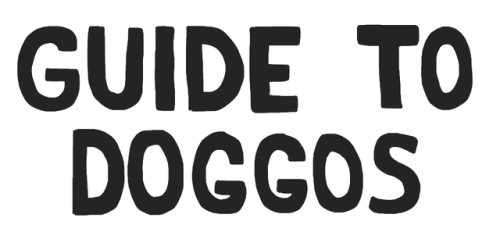
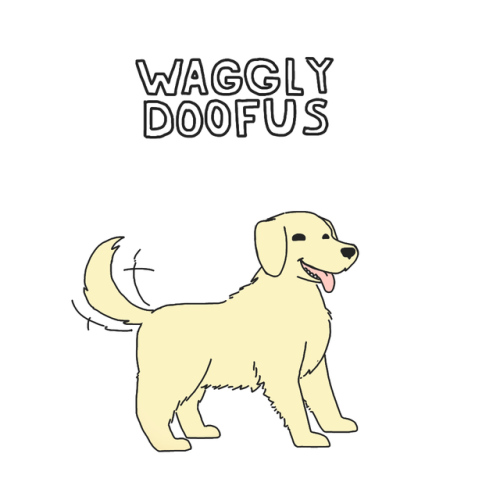

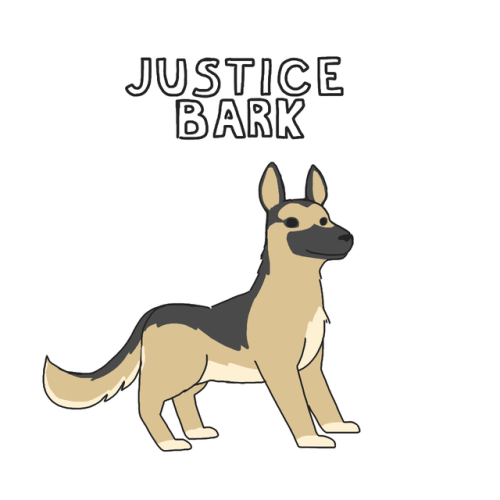
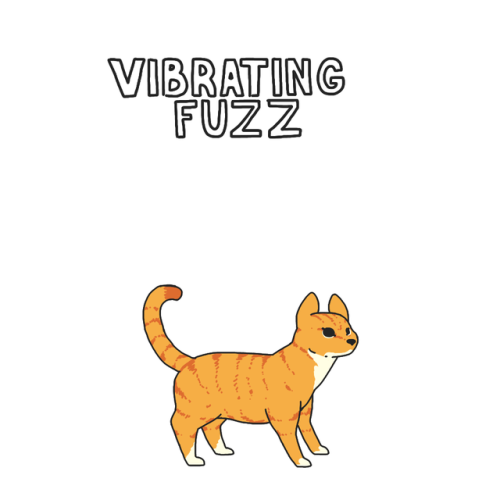

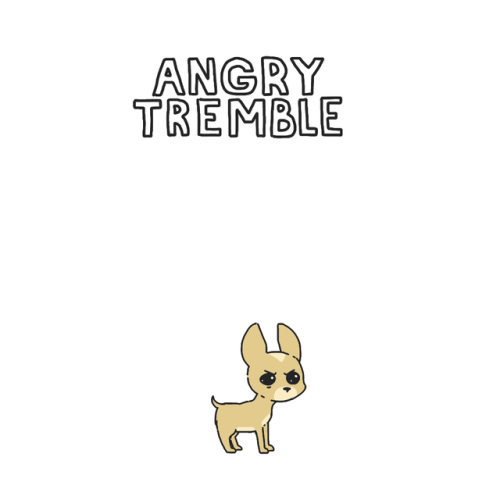
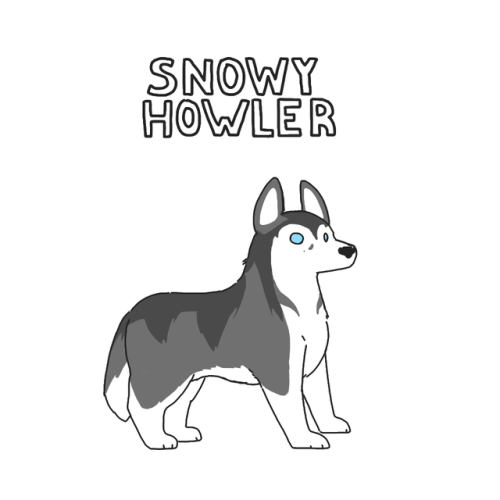
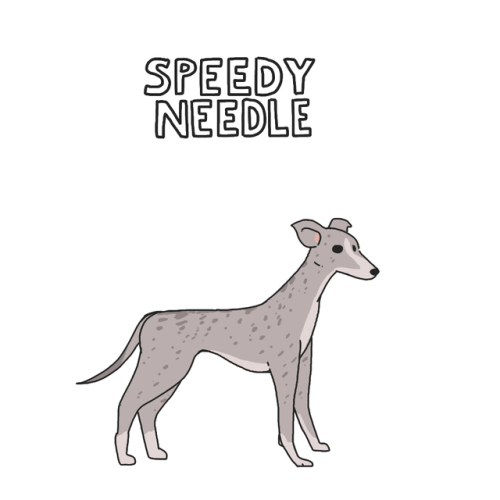
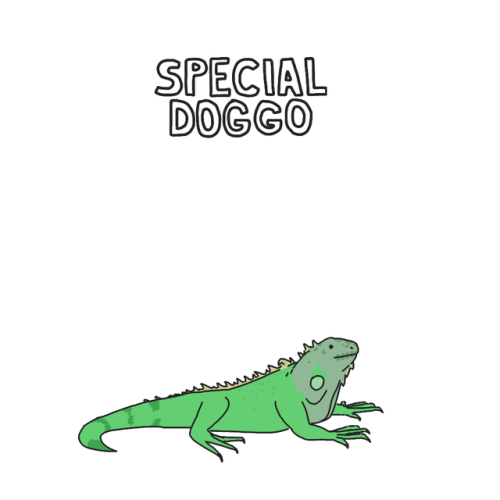
Here’s an easy guide to remember some dog names.
For folks who have problems hearing, we updated the new video with closed captions (sorry for the holiday delay).
This vid gave me cancer
-
 ethan001001 liked this · 6 years ago
ethan001001 liked this · 6 years ago -
 ppurinnieum liked this · 6 years ago
ppurinnieum liked this · 6 years ago -
 the-author-of-the-enchiridion reblogged this · 6 years ago
the-author-of-the-enchiridion reblogged this · 6 years ago -
 johnboyegabombs reblogged this · 6 years ago
johnboyegabombs reblogged this · 6 years ago -
 prodoodlemodeon liked this · 6 years ago
prodoodlemodeon liked this · 6 years ago -
 pirate123456789 reblogged this · 6 years ago
pirate123456789 reblogged this · 6 years ago -
 pirate123456789 liked this · 6 years ago
pirate123456789 liked this · 6 years ago -
 suspiciousacorn reblogged this · 6 years ago
suspiciousacorn reblogged this · 6 years ago -
 officialstevebarnes liked this · 6 years ago
officialstevebarnes liked this · 6 years ago -
 lord-starquaad reblogged this · 6 years ago
lord-starquaad reblogged this · 6 years ago -
 buildinganageofhealing-blog reblogged this · 6 years ago
buildinganageofhealing-blog reblogged this · 6 years ago -
 overlookjedi reblogged this · 6 years ago
overlookjedi reblogged this · 6 years ago -
 saiggio liked this · 6 years ago
saiggio liked this · 6 years ago -
 mnyehlike liked this · 7 years ago
mnyehlike liked this · 7 years ago -
 bermyagentofchange-blog reblogged this · 7 years ago
bermyagentofchange-blog reblogged this · 7 years ago -
 myimaginesyourimagines-blog liked this · 7 years ago
myimaginesyourimagines-blog liked this · 7 years ago -
 maroonfan liked this · 7 years ago
maroonfan liked this · 7 years ago -
 rapid-artwork liked this · 7 years ago
rapid-artwork liked this · 7 years ago -
 listeningboy liked this · 7 years ago
listeningboy liked this · 7 years ago -
 ferdydurke-moved liked this · 7 years ago
ferdydurke-moved liked this · 7 years ago -
 chickynuggy115 liked this · 8 years ago
chickynuggy115 liked this · 8 years ago -
 xgreywardencouslandx liked this · 8 years ago
xgreywardencouslandx liked this · 8 years ago -
 onesourdude liked this · 8 years ago
onesourdude liked this · 8 years ago -
 dahmumu liked this · 8 years ago
dahmumu liked this · 8 years ago -
 waitinginsanity reblogged this · 8 years ago
waitinginsanity reblogged this · 8 years ago -
 captainbushel liked this · 8 years ago
captainbushel liked this · 8 years ago -
 noiseraptor reblogged this · 8 years ago
noiseraptor reblogged this · 8 years ago -
 basilbumble reblogged this · 8 years ago
basilbumble reblogged this · 8 years ago -
 grumpygamergirl94 reblogged this · 8 years ago
grumpygamergirl94 reblogged this · 8 years ago -
 ssantisheep liked this · 8 years ago
ssantisheep liked this · 8 years ago -
 anamaycrystal reblogged this · 8 years ago
anamaycrystal reblogged this · 8 years ago -
 anamaycrystal liked this · 8 years ago
anamaycrystal liked this · 8 years ago -
 benobiwan reblogged this · 8 years ago
benobiwan reblogged this · 8 years ago -
 cupidschapel reblogged this · 8 years ago
cupidschapel reblogged this · 8 years ago -
 erikaafernns liked this · 8 years ago
erikaafernns liked this · 8 years ago -
 thepitchforkferal liked this · 8 years ago
thepitchforkferal liked this · 8 years ago -
 starwolf228 liked this · 8 years ago
starwolf228 liked this · 8 years ago -
 arisamilah liked this · 8 years ago
arisamilah liked this · 8 years ago -
 haleyea reblogged this · 8 years ago
haleyea reblogged this · 8 years ago -
 great-northern liked this · 8 years ago
great-northern liked this · 8 years ago -
 long-lost-idiot liked this · 8 years ago
long-lost-idiot liked this · 8 years ago
